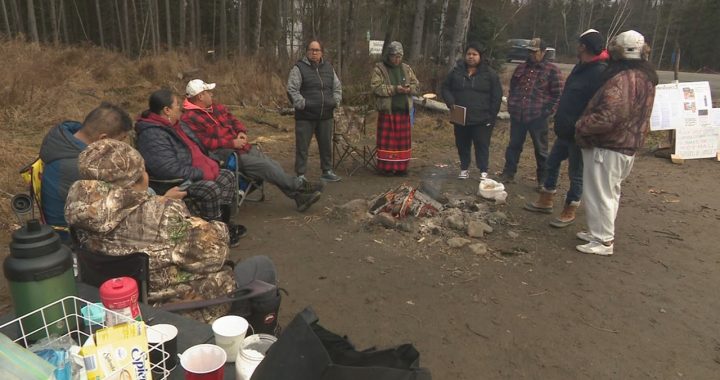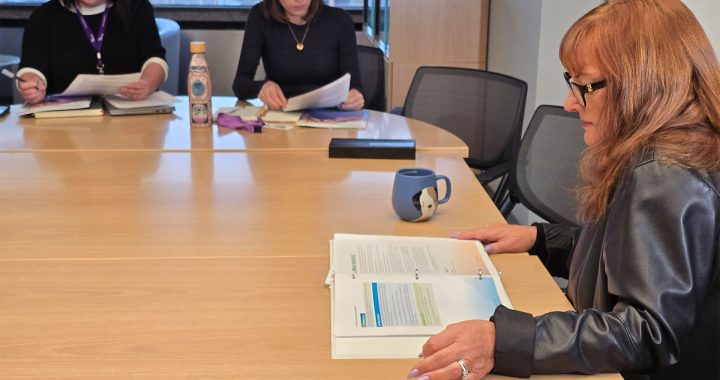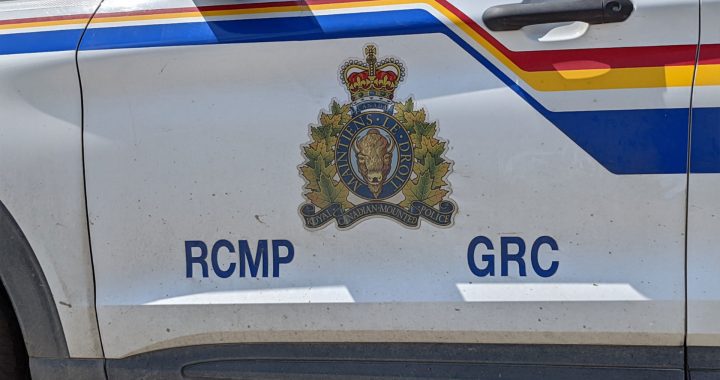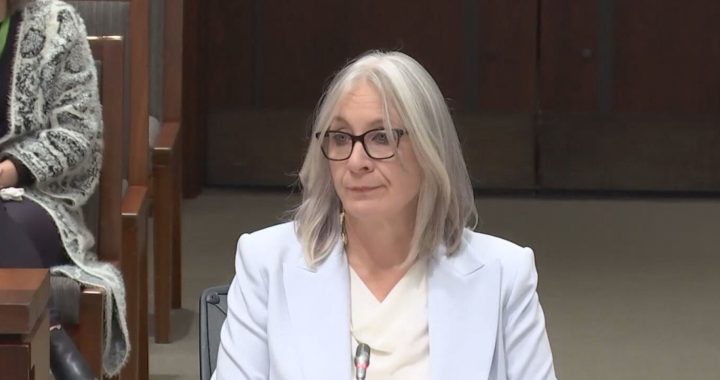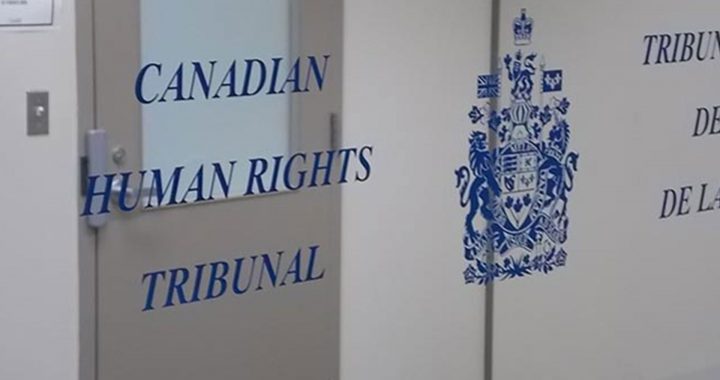The Assembly of First Nations Quebec-Labrador (AFNQL) and a handful of First Nations chiefs waited months for a roundtable on policing with the province’s Public Security Ministry.
Except when parties finally convened on Thursday, the meeting ended up being cut short unexpectedly.
“It almost was postponed and cancelled, and the outcome for the chiefs of Quebec was kind of unsatisfactory,” Lance Haymond, chief of Kebaowek First Nation, told APTN News.
“Lots of work, time and effort put in to get this meeting, and it did not materialize in a way that we had hoped that it would.”
Participating chiefs told APTN that Genevieve Guilbault, Quebec’s Public Security minister and key player in Thursday’s planned meeting, was called away 45 minutes into the meeting in order to present Bill C-105 at the National Assembly.
The emergency bill aims to put a stop to anti-vaccination protests outside public spaces like schools and hospitals.
“The fact there was a bill presented by the minister — it threw our pre-planned meeting into upheaval. It set us back a bit,” explained Steeve Mathias, chief of Long Point First Nation.
“We thought we’d have more participation from Minister Guilbault.”
Both Haymond and Mathias explained that participants were able to submit a few preliminary questions as part of the political roundtable organized by the AFNQL – but the brief discussions with Public Security representatives centered on questions of jurisdiction.
Those close to the Indigenous policing dossier in Quebec know there’s much more still to discuss.
During the first hearings of the Viens commission, looking at the relationship between Indigenous peoples and Quebec’s public services, Haymond told presiding commissioner Jacques Viens about policing gaps in his home community of Kebaowek, with over 800 registered members.
“There is no police service in this country that can expect two officers to work 24 hours a day, seven days a week, and 365 days a year – this is unrealistic,” Haymond said in his 2017 commission testimony.
Now in 2021, he told APTN things are slowly improving.
“I now have four officers: One is the chief of police, and I have three non-Indigenous officers who travel into the community and work one week on and one week off,” Haymond explained.
“[But] while we’re able to increase salaries and attract non-Native police officers, we still struggle with a constant turnover,” he added. “They come and they work for us a while they’re waiting for a call from the [Surete du Quebec] or the RCMP.”
When it was finally released in 2019, the Viens commission final report made 137 calls to action addressing the “extremely difficult nature of the relations between Indigenous peoples and police authorities,” and a host of other issues in the public sector.
Quebec insists it’s now making headway on those calls to action, two years later.
“Sixty-eight calls to action have either been implemented, or are on their way to being implemented,” stated Quebec’s Indigenous Affairs Minister Ian Lafreniere during a two-year Viens commission update on Sept. 17.
“[Our] priorities have been established with chiefs and grand chiefs over visits I’ve done during the summer – and those priorities are education, which is extremely important, talking about youth protection, and also the wellbeing of Indigenous women,” Lafreniere added.
But policing is still very much on the brain for First Nations communities.
Within the last three months, the Mohawk community of Kanesatake and the Anishinaabe community of Long Point both made formal government requests for increased police funding, citing tensions with the Surete du Quebec.
Long Point Chief Mathias says a pilot project for an inter-community police force could get off the ground soon — but the ball is in Quebec’s court.
“We made a request for a mediator, and Quebec suggested naming a facilitator with the goal of creating a service point – to start – for the community of Winneway (Long Point),” Mathias told APTN.
Despite the community’s optimism and “openness” to the idea, Mathias knows there are important logistical discussions still to be had.
“The [Quebec] government says it wants a ‘nation to nation’ relationship, government to government – but how does that translate on the policing file?” Mathias asked.
“It’s these discussions we want to have with the government, to clarify once and for all how we can better manage community affairs, including public security,” he added.
AFNQL Regional Chief Ghislain Picard was not available to comment on the outcome of Thursday’s political roundtable.
However, he touched on the importance of police-related discussions during an interview with APTN’s Nouvelles Nationales earlier this week.
“It’s not a new file, it’s not a new fight. We’ve been to Parliament Hill in Ottawa at least twice since 2011,” Picard explained. “It’s time for governments to recognize our police services as essential services just like provincial, federal and municipal police forces are.”
“But at the same time, there needs to be permanent funding so our police services don’t end up at the mercy of agreements negotiated at the last minute.”
APTN reached out to Quebec’s Public Security Ministry, but a spokesperson refused to comment on the outcome of the “private meeting.”
A second email inquiring about a possible follow-up meeting between Guilbault and First Nations stakeholders went unanswered by publishing time.
“With the emergency tabling of the legislation – it meant that the deputy premier’s priorities needed to shift. I don’t blame [Guilbault] personally for what happened.” Haymond added.
“It’s just a sad coincidence.”




